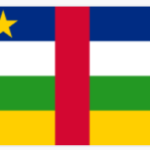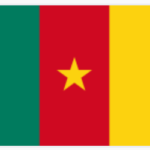Cape Verde, or Cabo Verde in Portuguese, is an island nation in the central Atlantic Ocean, consisting of 10 volcanic islands and several islets. The country has a total land area of about 4,033 square kilometers (1,557 square miles) and a population of about 560,000 people. Cape Verde is known for its diverse culture, rich history, beautiful scenery, and warm climate.
Cape Verde was discovered by Portuguese explorers in the 15th century and became a colony of Portugal until 1975, when it gained its independence. The country was a strategic point for the Atlantic slave trade and also attracted merchants, pirates, and privateers. Cape Verde suffered from economic decline and droughts in the 19th and 20th centuries, which led to mass emigration. However, the country has recovered since the 1990s and has become one of the most stable and democratic countries in Africa.
Cape Verde’s official language is Portuguese, but most people also speak Cape Verdean Creole, a mixture of Portuguese and African languages. The country’s culture is influenced by its African and European heritage, as well as by its geographic location and isolation. Cape Verde has a rich musical tradition, featuring genres such as morna, coladeira, funaná, and batuque. The country also has a vibrant literary scene, with writers such as Jorge Barbosa, Eugénio Tavares, Baltasar Lopes da Silva, and Germano Almeida.
Cape Verde’s economy is mainly based on services, especially tourism and remittances from the diaspora. The country has limited natural resources and relies on imports for most of its food and energy needs. Cape Verde is also vulnerable to natural disasters such as volcanic eruptions, earthquakes, landslides, floods, and droughts. The country faces challenges such as poverty, unemployment, inequality, environmental degradation, and climate change.
Cape Verde is a member of several regional and international organizations, such as the African Union, the Community of Portuguese Language Countries, the Economic Community of West African States, the United Nations, and the World Trade Organization. The country has established diplomatic relations with many countries around the world and has a special partnership with the European Union. Cape Verde is also part of the Macaronesia ecoregion, which includes the Azores, the Canary Islands, Madeira, and the Savage Isles.
Cape Verde is a fascinating destination for travelers who want to experience a unique blend of African and European cultures, enjoy stunning natural landscapes, and discover a rich history. Some of the main attractions in Cape Verde include:
- The capital city of Praia, located on Santiago island, which offers historical sites such as the Presidential Palace, the Ethnographic Museum, and the Nossa Senhora da Graça Cathedral.
- The island of Fogo, which is home to Pico do Fogo, the highest peak in Cape Verde and an active volcano that last erupted in 2014.
- The island of Sal, which is famous for its white sandy beaches, turquoise waters, salt pans, and water sports activities such as surfing, windsurfing, kitesurfing, diving, and fishing.
- The island of São Vicente, which is the cultural hub of Cape Verde and hosts the annual Carnival festival in February. The island also has a lively nightlife scene in its main city of Mindelo.
- The island of Santo Antão, which is ideal for hiking enthusiasts who want to explore its rugged mountains, green valleys, and picturesque villages.
- The island of Boa Vista, which is known for its desert-like landscape, sand dunes.








